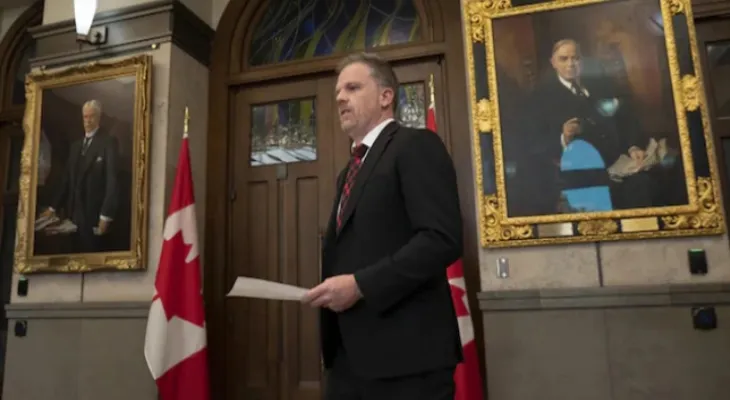Search here
Newspaper
Search here

Arab Canada News
News

Published: December 13, 2023
The New Democratic Party agreed to support the Liberal government in exchange for the pharmaceutical care bill by the end of the year.
Meanwhile, Minister of Health Mark Holland indicated on Tuesday that it is unlikely the government will meet the year-end deadline imposed by the New Democratic Party to pass the drug care legislation – a condition of the supply and confidence agreement reached to keep the Liberals in power until 2025.
For his part, Holland said talks are ongoing with New Democratic Party MP Don Davies, the party's health critic, who has been working with the government to draft legislation to implement some sort of national drug coverage plan.
Davies also noted that the long-awaited bill may not be implemented by the end of the year.
Davies said: "We will continue to work hard in the coming weeks to fulfill the spirit of our supply and confidence agreement," adding that the deadline set by his party is artificial.
The supply and confidence agreement is clear about what the New Democratic Party wants in exchange for supporting the government in a minority parliament: Canadian drug care legislation passed by the end of 2023 to establish a framework for comprehensive national drug care.
Such legislation has not been presented, and time is running out.
It is also highly unlikely that such controversial legislation will pass both houses of parliament before MPs and senators leave for the Christmas holiday.
The Liberals said they will miss the year-end deadline to pass the drug care legislation – a key demand in the supply and confidence agreement with the New Democratic Party that keeps the Liberal minority government in power.
Holland rephrased the New Democratic Party’s demand when asked about it in a press conference.
Holland also said about the discussions with Davies that this area is very complex and trying to find common ground certainly takes time.
Holland added that these indicators were set out in the supply and confidence agreement as guiding principles, referring to the end of 2023 text in the agreement.
The sticking point may be the cost of a universal drug care system based on a single payer – a program that would shift the financial burden from employers and people with private plans paying out of their own pockets to a government-run program.
The pharmaceutical coverage system in Canada is divided between public insurance (44 percent of prescription drug spending) and privately insured/funded (56 percent), according to the Canadian Institute for Health Information (CIHI).
Major changes to this system would also be costly for federal and provincial governments, according to a recent report released by the Parliamentary Budget Officer (PBO).
Comments